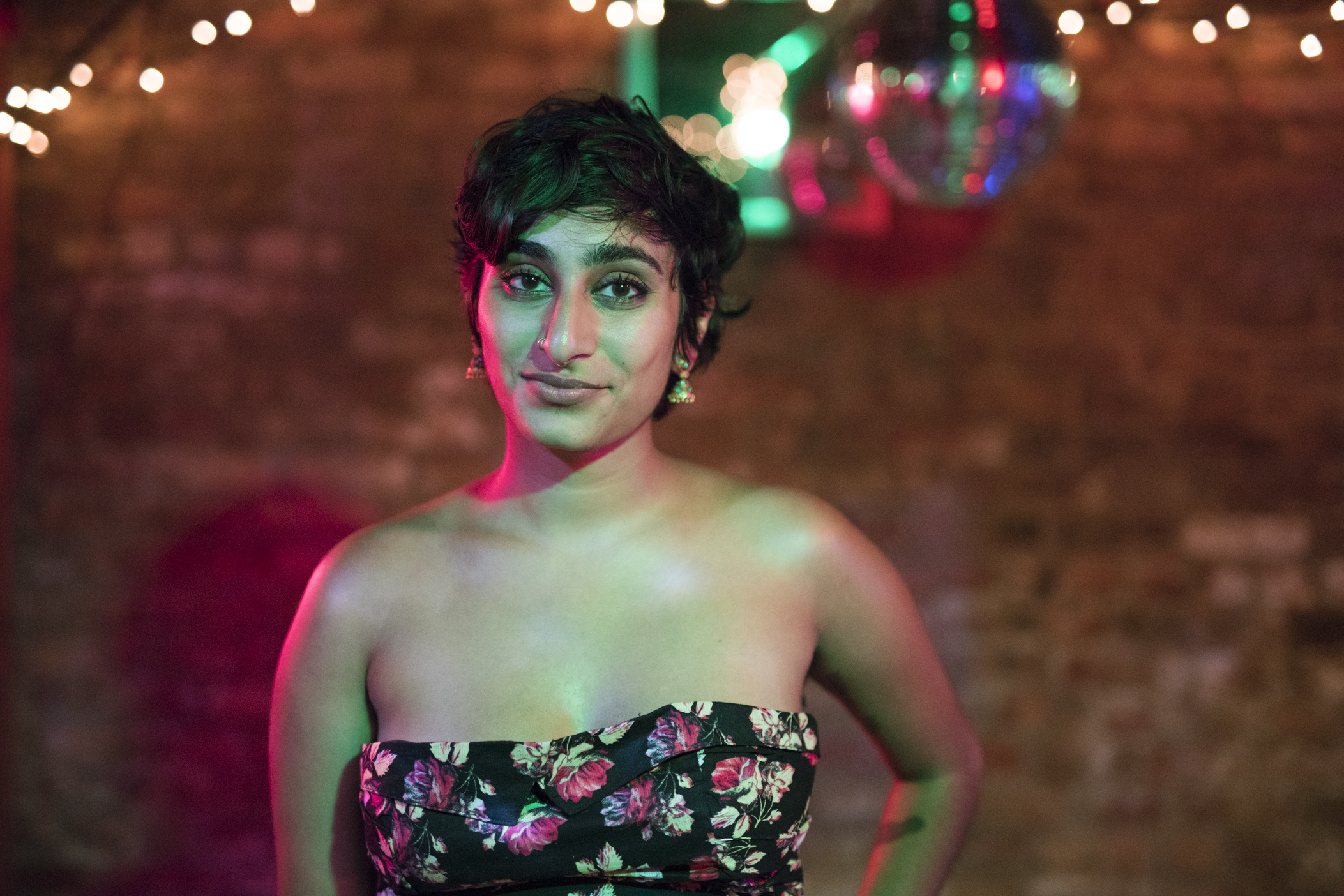
Throughout her 20s, Fatimah Asghar kept waiting to see a movie or television show that reflected her life, her friendships and relationships. When that didn’t happen, she decided to write one herself: a new webseries called Brown Girls.
Based on the real-life friendship of Asghar and the series’ music consultant Jamila Woods, Brown Girls follows two young women making their way through their 20s in Chicago: Leila, a South Asian-American coming to terms with her queerness, and her best friend Patricia, a sex-positive black musician struggling with commitment. The series explores storylines the creators feel are rarely covered in mainstream television—namely, nuanced relationships between women of color.
The first episode opens as Leila (Nabila Hossain) has an intense phone conversation with her aunt, who lectures her about sex and urges her to go to the mosque—all while another woman lies naked in Leila’s bed. As a queer South Asian Muslim woman, Asghar, 27, had never seen a character like that before on television.
“A lot of people come from intersections that get erased on media platforms,” she said. “If we can shed light that these people exist and are real, and have many different personalities, it will expand the definition of what some of these identities mean.”
Muslim characters have long been under-represented on the big and small screen, and after the Sept. 11 attacks, they were “confined to roles like terrorists and gas station owners,” Asghar said. Things have shifted slightly over the past few years, with the popularity of shows like Atlanta, Master of None, Insecure and The Mindy Project—but Asghar still hasn’t seen characters that represented her specific experience.
Series co-creator and director Sam Bailey said it was important to show diverse characters that are not treated as “vessels for pain.”
“When there are stories about people of color, it flirts with trauma porn,” Bailey said. “There’s definitely bad stuff that happens. I just want to add to the narrative that shows they get to be happy. These are people that we know.”
Along with a diverse cast, the people behind the scenes of Brown Girls are mainly women and people of color, which shaped the collective experience of creating the series.
“A huge priority was to make our set feel like a good feeling that people could come and specifically contribute things. Even if you’re working on creative projects, there are structures that make you feel uncomfortable. We really wanted to create a thing that was counter to that.”
Brown Girls took on broader importance for Asghar—and more political shades of meaning—after President Donald Trump took office and issued an executive order banning immigrants from seven Muslim-majority countries.
“With Trump, with the election there’s just so much more weight on stuff,” Asghar said. “It feels like a really important time to have a different representation of Muslims in the world. Seeing more complicated images will really help.”
Bailey said that while showing complex portrayals of black, queer and brown women has always been important, it is even more essential now that viewers see accurate depictions of the full spectrum of diversity in America.
“If I was 15, 16, whatever and got to see these versions of myself on TV, I would have felt a lot less lonelier,” she said. “It’s more important now because you see different people of color coming together.”
Brown Girls premieres online Wednesday at 8 p.m. CT. Check out screenings here.
More Must-Reads from TIME
- How Donald Trump Won
- The Best Inventions of 2024
- Why Sleep Is the Key to Living Longer
- Robert Zemeckis Just Wants to Move You
- How to Break 8 Toxic Communication Habits
- Nicola Coughlan Bet on Herself—And Won
- Why Vinegar Is So Good for You
- Meet TIME's Newest Class of Next Generation Leaders
Write to Mahita Gajanan at mahita.gajanan@time.com